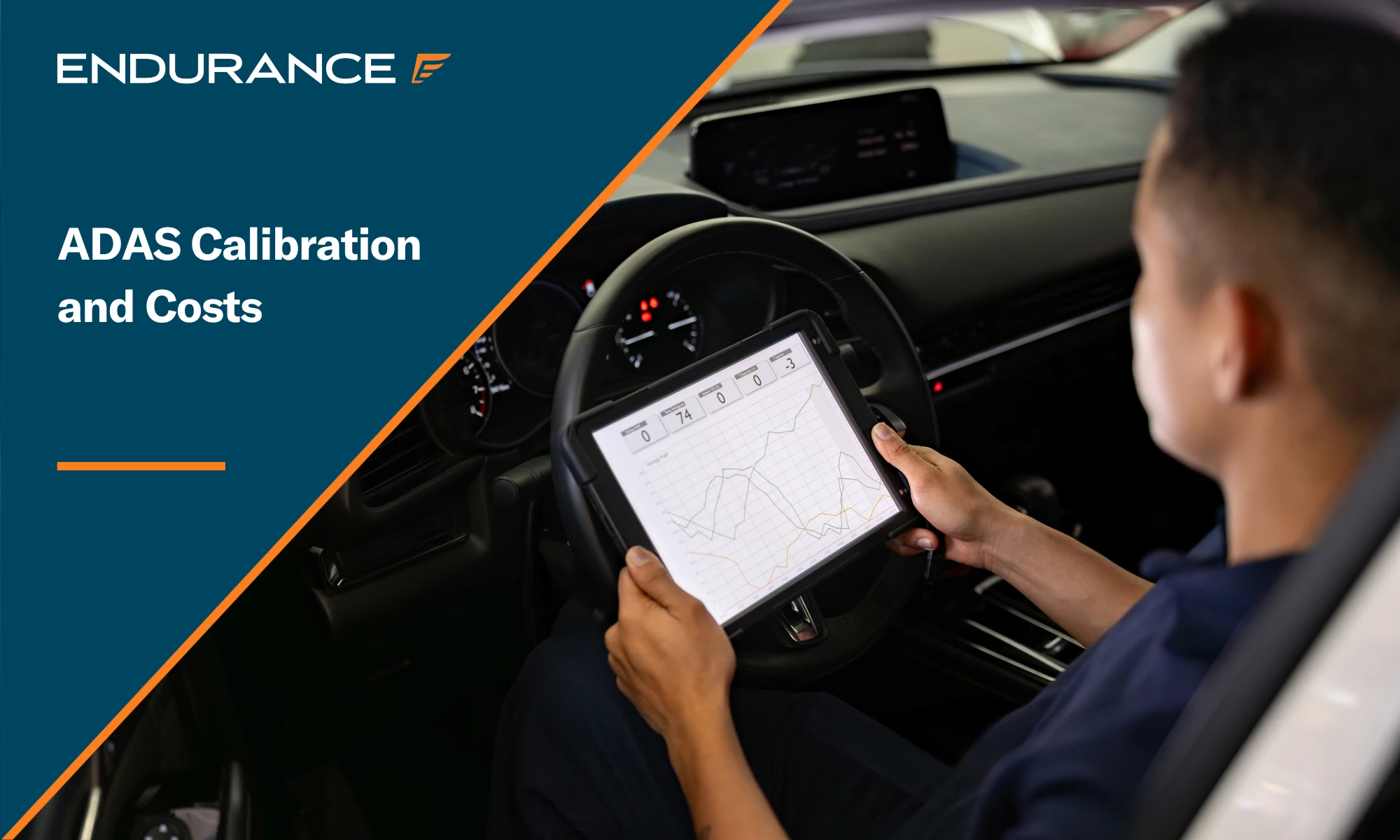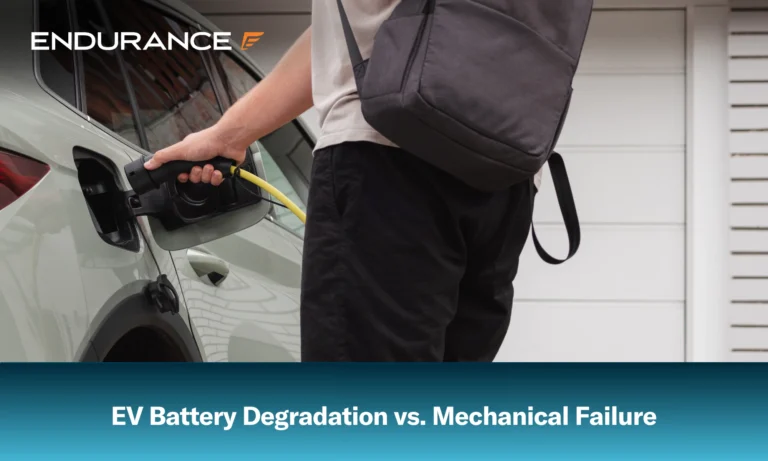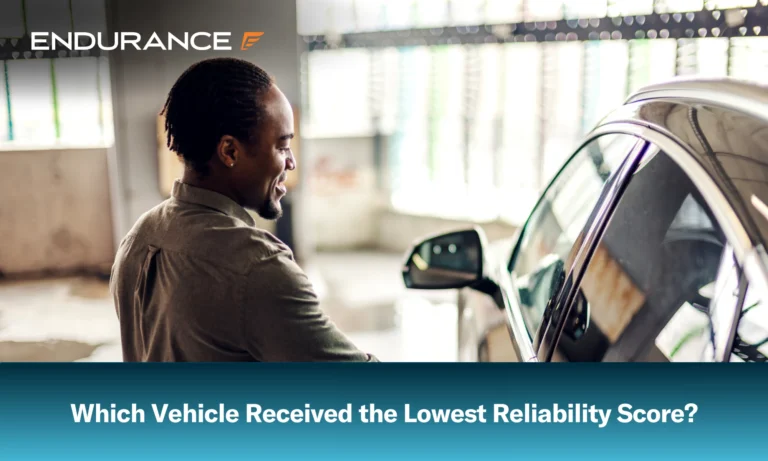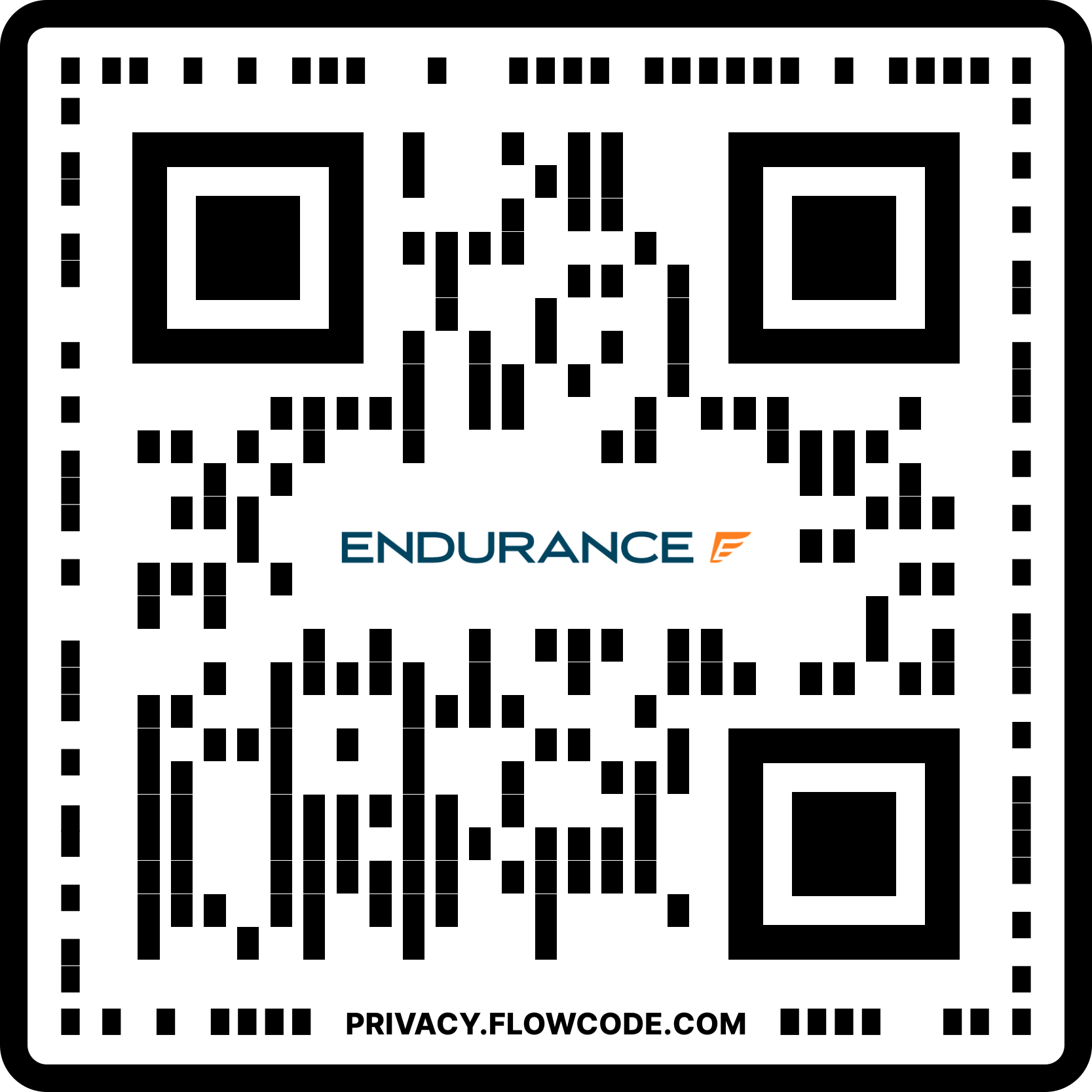The Hidden Costs of ADAS: Why Calibration Matters and What Your Warranty Might Miss

Modern vehicles equipped with advanced driver assistance systems (ADAS) require precise calibration after any repair, replacement, or alignment work. Failing to calibrate these systems properly can result in safety risks, system malfunctions, and costly out-of-pocket expenses.
Unfortunately, many factory warranties and insurance policies don’t cover calibration. Extended car warranties or vehicle service contracts from providers like Endurance can help reduce the costs of unexpected repairs by covering certain ADAS components, such as sensors or cameras, when they are included in your plan.
What Is ADAS, and Why Should You Care About the Calibration Process?
Advanced Driver Assistance Systems (ADAS) include a wide range of technologies designed to improve vehicle safety and driving comfort. Safety features like lane departure warning, forward collision warning, automatic emergency braking, blind spot detection, adaptive cruise control, rear cross traffic alert, and parking assistance are found in most new vehicles.
These systems rely on a network of sensors, cameras, radar units, and sometimes lidar—all of which must be perfectly calibrated to ensure they work as intended.
So, what is ADAS calibration? It’s the process of precisely aligning and programming the ADAS sensors so they can “see” the environment correctly. Even a small deviation caused by a bumper shift or windshield replacement can cause the system to misinterpret distances or obstacles, leading to unsafe driving conditions.
ADAS isn’t a “set-it-and-forget-it” technology. It requires regular checking, recalibration after even minor repairs, and sometimes professional diagnostic scanning to verify its performance.
Real-Life Scenarios Where Calibration Is Required
Many drivers assume ADAS calibration is only needed after major repairs, but that’s far from the truth. Even seemingly minor repairs and services can disrupt sensor alignment. For example, a simple windshield replacement can displace a front-facing camera. Bumper damage may compromise radar sensors. Suspension adjustments, wheel alignments, or even headlight replacements can throw off sensor orientation and render systems inaccurate.
Consider the scenario where a tire change slightly alters your car’s ride height. This small variation can impact how forward-facing cameras detect lane lines or vehicles ahead. Similarly, replacing a side mirror that houses a blind-spot sensor could lead to misreadings that affect your confidence in lane changes.
It’s not just luxury vehicles, either. Many mid-range and even entry-level cars now come equipped with some form of ADAS. That means more drivers are at risk of the unexpected costs.
What Happens If You Skip Calibration?
Skipping ADAS calibration isn’t just a minor oversight—it can lead to serious consequences. Malfunctioning sensors can create safety hazards, like incorrect lane-keeping assistance or delayed emergency braking. False alerts from blind spot monitors may become an annoyance, but even worse is the risk that they might fail to detect real dangers.
There are also potential legal implications. If improperly calibrated ADAS systems contribute to a fender bender or a more serious accident, liability may increase. Moreover, future diagnostics can be misled by faulty input, resulting in misdiagnosed issues and unnecessary costs. In short, not getting a proper calibration can be costly and it can also cost you safety and peace of mind.
Imagine being in a situation where your forward collision alert fails to activate in time, leading to a rear-end collision. If an investigation reveals that the sensor was not calibrated correctly after a windshield replacement, you might bear more fault than expected. These scenarios, though uncommon, highlight why calibration is so important.
How Calibration Errors Impact Everyday Driving
Misaligned ADAS technology systems ultimately disrupt daily driving. Lane assist may start to drift or nudge the wheel unnecessarily. Blind spot alerts might become overactive or completely fail to activate. Emergency braking systems could respond late or not at all. And drivers who rely too heavily on these systems, assuming they are accurate, may not realize they’re putting themselves and others at risk.
These subtle glitches build up over time and can be dangerous if left unchecked. What seems like a minor annoyance can quickly escalate into a serious hazard on the road.
Moreover, if you regularly commute in high-traffic areas, use your vehicle for ride-sharing, or frequently travel long distances, these small malfunctions can become exhausting and frustrating. A well-calibrated ADAS makes driving smoother, more predictable, and much safer overall.
The True Cost of ADAS Calibration
ADAS calibration costs vary depending on vehicle, system complexity, and the specific type of calibration required. In general, you can expect costs to range from $300 to $600.
Many insurance policies and even warranties don’t cover this, leaving you to shoulder the cost. Worse, less reputable repair shops may cut corners due to insurer reimbursement limits, putting your safety and the integrity of your vehicle’s systems at risk.
What’s Covered By Factory Warranties or Insurance
Factory warranties often expire after three to five years or between 36,000 and 60,000 miles. Even while active, they rarely cover recalibration unless it is required due to a manufacturing defect.
Insurance may step in, but only in specific scenarios. Calibration following a covered collision might be reimbursed under collision insurance. Glass damage from vandalism or a tree branch may fall under comprehensive coverage. However, routine recalibration (such as after a tire alignment or suspension work) is usually excluded. That means many drivers are unprotected when it matters most.
Even when coverage is technically available, some insurers impose caps or require pre-authorization before recalibration is approved. If your shop performs the service without prior insurer consent, you could be left footing the bill. This is especially important to know before booking a service with third-party or mobile ADAS calibration providers.
Extended Warranties and ADAS: Why You Need One
A comprehensive extended warranty or vehicle service contract can help pay for repairs that factory warranties and insurance often don’t. Many plans include protection for the sensors, cameras, and radar your vehicle relies on, along with other ADAS components, when they’re listed in your coverage.
While routine ADAS calibration on its own is considered a maintenance procedure and usually isn’t covered, calibration labor may be included when it’s directly related to the repair or replacement of a covered component, which means you can get help when those advanced systems need attention as part of a covered claim. This way, your plan can step in so you’re not stuck with surprise repair bills.
Picking a provider who understands the needs of today’s tech-heavy vehicles ensures you’re better protected and gives you more confidence that your car’s safety features will continue to work the way they should.
How Endurance Helps Protect Your ADAS Systems
Endurance plans may include coverage for certain ADAS components, such as sensors and cameras. If those parts require repair or replacement under your plan, the associated calibration labor may also be covered.
We also partner with certified repair facilities that follow OEM procedures, ensuring that recalibrations are done to the highest possible standards. Additional perks like trip interruption coverage, rental car reimbursement, and 24/7 roadside support further strengthen make every contract even better value for money.
With customizable plans designed with advanced tech features in mind, we make it easy to find the right fit. Our Supreme and Advantage plans are particularly well-suited to cars equipped with modern driver assistance and ADAS features.
We also provide dedicated customer support to walk you through claim filing and help coordinate with auto shops. This not only makes the repair process smoother, but ensures calibration isn’t skipped or undervalued.
Questions to Ask Your Mechanic or Body Shop
Before you authorize any repair, ask your technician a few key questions, starting with whether your ADAS will need recalibrating after the work. If the answer is yes, ask whether they perform both static and dynamic calibration and whether OEM procedures are followed.
Finally, request documentation of the calibration is provided once it’s completed. If a shop dismisses the importance of recalibration or doesn’t have the right tools, consider taking your car elsewhere—preferably to a repair shop that works with your extended warranty provider.
Never hesitate to contact your warranty provider before the service to confirm coverage and ensure proper documentation. Many shops will be unfamiliar with the specific ADAS systems in different makes and models, so double-checking coverage and procedures can save you time, money, and stress.
Future-Proofing: ADAS Is Here to Stay
By 2030, nearly all new vehicles will come with ADAS. And as systems grow more complex, costs will rise. Insurance coverage may tighten further, and calibration will become more frequent and more essential.
That’s why vehicle service contracts from providers like Endurance are becoming less of a luxury and more of a necessity. As your vehicle’s brainpower increases, so does your need for smart protection.
ADAS calibration could one day be mandated after specific services, just like emissions or brake checks. Having an extended warranty or auto protection plan in place will allow you to stay ahead of regulatory changes and keep your vehicle compliant with less financial strain.
To learn more about the Endurance offering and which plan might be right for you, give one of our advisors a call at (800) 253-8203 or request a FREE quote online. You can also shop our eStore to see your price and plan recommendations instantly.
Visit our extended warranty blog to check out other helpful articles just like this one.













Justin Barrett, owner of Barrett Automotive shops in Eastanollee and Cornelia, Georgia, has nearly 20 years of experience in vehicle repair and diagnostics. Since founding his auto repair facilities with his wife in 2010, he has been dedicated to helping drivers with everything from routine maintenance to complex repairs. Read more about Justin.